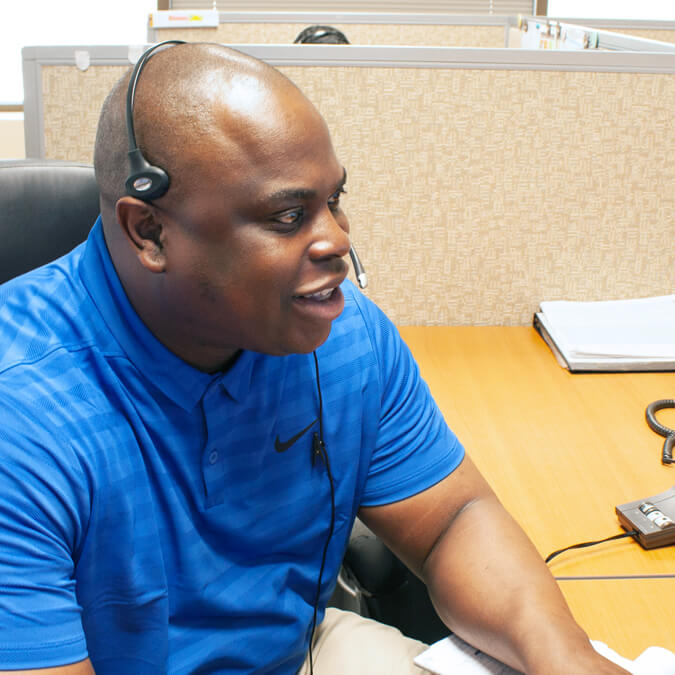
Alabama Ignition Interlock Requirements
Alabama has strict laws against driving under the influence, or DUI. They include financial penalties, fines, and license suspension. This guide will cover the penalties for DUI in Alabama and provides information about ignition interlock devices (IIDs), including voluntary options from Intoxalock.
The Alabama Ignition Interlock Program
The legal blood alcohol content, or BAC, in Alabama is .08 for motorists, and .04 for commercial driver's license holders. For offenders under 21, the limit is .02 percent BAC. An offender may be required to install an IID to regain driving privileges. Intoxalock is not an authorized provider for this program, but we offer high-quality voluntary-use IID installations.
What Happens if I Get a DUI in Alabama?
First DUI Offense
- Jail sentence of up to one year maximum and/or fines from $600 to $2,100
- License suspended for 90 days
- Completion of a DUI or substance abuse court referral program
- Offender may need to install an IID to regain driving privileges
Second DUI Offense (Within 10 Years of First Offense)
- Jail sentence of up to one year maximum, five days minimum
- 30 days community service can be served in lieu of five days in jail
- Fines $1,100 to $5,100
- License revoked for one year
- Completion of a DUI or substance abuse court referral program
- Installation of an IID to regain driving privileges
Third DUI Offense (Within 10 Years of Previous Offense)
- Minimum of 60 days in jail, up to one year maximum
- Fines of $2,100 to $10,100
- License revoked for three years
- Completion of a DUI or substance abuse court referral program
- Installation of an IID to regain driving privileges
What Happens if I Fail to Complete or Refuse to Submit to a DUI Test in Alabama?
Refusing to take a test can still be convicted of a DUI and face the consequences listed above. Drivers who refuse to submit to a test can also face immediate consequences including a 90-day license suspension. This can increase to one year of license suspension if it is their second refusal in a 10 year period.
How Do I Regain Driving Privileges in Alabama?
Alabama allows some offenders to regain driving privileges if they install an ignition interlock device. To get back on the road, offenders should:
- Pay any necessary fines and fees
- Obtain the required insurance coverage
- Install an ignition interlock device from an approved provider
- Serve out the required suspension period if necessary
- Complete any mandatory evaluations, treatment, or assessments
- Provide proof of IID installation to the Alabama Law Enforcement Agency
The Process: What to Expect
-
Consult with Legal Counsel
Seek guidance from a DUI lawyer to understand your legal options and rights following a DUI violation.
-
Get an Assessment
Complete a court-ordered or voluntary assessment to evaluate your risk level and determine any required interventions.
-
Obtain Proof of SR-22 Insurance, If Required
If applicable, provide proof of financial responsibility and insurance coverage with an SR-22 certificate.
-
Schedule Interlock Install
Get an IID that meets court or state requirements installed. Note that Intoxalock is not a state-authorized IID provider in Alabama, but we do offer IID devices for voluntary installation.
-
Regular Monitoring
Your ignition interlock usage will be regularly monitored to maintain compliance with legal requirements.
-
Device Removal
After fulfilling your IID requirement and receiving approval from your monitoring authority, you can arrange to have your ignition interlock device removed at your local service center.
Alabama Ignition Interlock Device Cost

Expert DUI Attorneys in Alabama
Pierce & Pierce
Gadsden, AL 35901
Mauldin Law Firm
Birmingham, AL 35205
Jaffe, Hanle, Whisonant & Knight P.C.
Birmingham, AL 35205
Glasscox Law Firm, LLC
Tuscaloosa, AL 35401
Alabama FAQs
Can I get financial assistance to pay for my ignition interlock device in Alabama?
There is no financial assistance available for voluntary devices in Alabama. However, offenders who are required to install the device but cannot afford the costs can apply for financial assistance via the state’s Ignition Interlock Indigent Fund.
How do I find an installation location near me in Alabama?
Intoxalock offers more installation locations than any other interlock provider with over 5,500 locations nationwide. While Intoxalock is not a state-authorized provider in Alabama, we do offer voluntary installations at our Alabama locations and are happy to assist.
How does an ignition interlock device work?
To see how an ignition interlock device works, visit our ignition interlock page and watch our video demonstrating how to use the device.
How much does an ignition interlock cost in Alabama?
Intoxalock voluntary devices cost $49.99 per month to lease. Drivers will need to put down a $100 deposit and pay a $29.99 set-up fee as well.
Voluntary devices require a $100 deposit and $29.99 set-up fee for installation and cost $49.99 per month to lease.
Check with your attorney or the court for a list of approved providers and pricing.
What are the Alabama ignition interlock device requirements?
Intoxalock devices are currently available in Alabama on a voluntary basis. Check with your attorney for a list of state-approved providers.
What are the other DUI requirements in Alabama?
Details about DUI requirements in Alabama are detailed on the Alabama state page.
What are the steps to get my ignition interlock device in Alabama?
If you are installing a voluntary device, Intoxalock can help. Contact our state specialists or an Alabama service center location to make an appointment. Technicians will install your device and show you how to use it before you leave.
What information should I provide to get my ignition interlock device installed in Alabama?
When installing a voluntary ignition interlock device, you will need to provide the installer with the make and model of your vehicle as well as proof of ownership. If you do not own the vehicle, you may need to bring proof showing you’re an authorized user of the car/a signed letter from the owner. The service center will be able to tell you what you need to bring.
What information should I provide to get my ignition interlock device removed in Alabama?
A voluntary device can be removed at any time. Mandated devices may require paperwork showing you have fulfilled your obligation. Check with your attorney or state monitoring authority if you have a mandatory interlock device.
What is an ignition interlock device and why do I need one?
An ignition interlock device is a breathalyzer for your car that prevents it from starting if alcohol is detected. Some drivers are required to install an IID after a DUI conviction, while others use it on a voluntary basis as a sobriety aid.
When can I get my ignition interlock device removed in Alabama?
You will return to the same service center where the device was installed when having it removed. If you have moved out of state during your interlock term, you can have the device removed at another of your interlock provider’s locations.
Where can I find more information on ignition interlock devices?
We have researched experienced DUI attorneys in Alabama and have a list you can use to help you find one to work with.
Where can I find other DUI resources such as a DUI attorney, treatment center, or SR-22 insurance in Alabama?
Intoxalock partners with many DUI attorneys throughout the country. View our list of experienced DUI attorneys in Alabama.
Customers Have Great Things to Say
The information provided on this website does not, and is not intended to, constitute legal advice; instead, all information, content, and materials available on this site are for general informational purposes only. Information on this website may not constitute the most up-to-date legal or other information.
Readers of this website should contact their attorney to obtain advice with respect to any particular legal matter. Only your individual attorney can provide assurances that the information contained herein – and your interpretation of it – is applicable or appropriate to your particular situation.









